Clean Water and Its Importance for Dialysis Patients
Dialysis is a life-saving treatment method for patients who cannot perform kidney functions due to serious kidney diseases like kidney failure. This treatment is used to clean and balance harmful waste and excess fluid in the patient's blood. Dialysis plays a vital role in enabling patients to continue their lives; however, the quality of the water used in this treatment process profoundly affects the patient's health and the efficacy of the treatment. Calculations for "fluid balance" are commonly made to determine the daily fluid intake of dialysis patients. These calculations may be based on the patient's body weight, urine output (if any), the number and duration of dialysis sessions. Fluid balance indicates that the amount of fluid taken into the body should equal the amount of fluid expelled from the body. For example, a dialysis patient might be restricted to a diet allowing daily fluid intake between approximately 500 ml and 1,000 ml (0.5 - 1 liter). However, this amount is personalized and adjusted according to each patient's condition. It is important for dialysis patients to act according to specific fluid intake targets given by their doctors or dietitians.
The amount of pure water used during dialysis sessions can also vary depending on the protocols of the dialysis center and the needs of the patient. Taking into account the duration and frequency of each dialysis session, this water amount is determined. Hemodialysis sessions generally use between 120 and 200 liters of water. However, these amounts can still vary depending on the patient's condition and treatment plan. The daily fluid intake of dialysis patients and the amount of pure water used during dialysis sessions vary based on individual factors and treatment requirements. Therefore, it is important for patients to communicate with their doctors or dietitians on this matter and act according to the given recommendations.
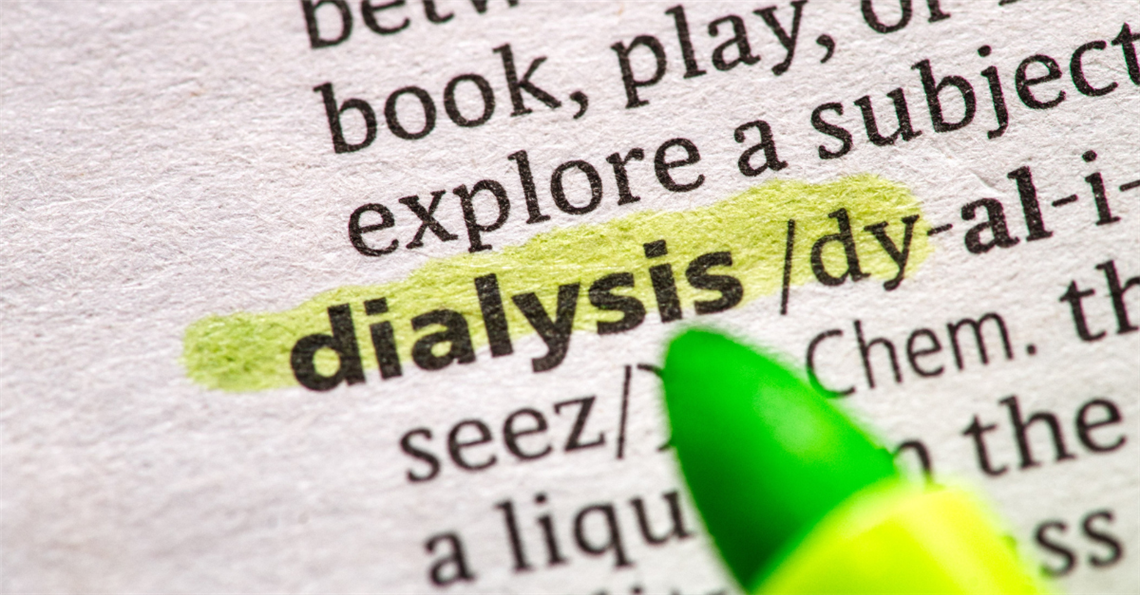
The daily water consumption amount for dialysis patients can change based on the individual needs of the patient, the treatment plan, and the level of kidney failure. Generally, dialysis patients may have to limit fluid intake because, without properly functioning kidneys, excess fluid tends to accumulate in the body, leading to serious complications.
What is Ultra-Pure Water?
Ultra-pure water is the definition of water in its purest form. This water is nearly free from all types of minerals, salts, microorganisms, and contaminants. The production of ultra-pure water is of critical importance for the safety and effectiveness of dialysis and hemodialysis sessions.
Importance of Water Quality in Dialysis
Waste Removal
Patients with kidney failure require dialysis treatment to clean the accumulated harmful waste from their bodies and to substitute for urine production. This process involves filtering the patient’s blood through a dialysis machine. However, this cleaning process can only be effectively done with high-quality, purified water. Clean water is used to carry toxins and excess fluid that needs to be removed from the patient's body. If the water is not adequately clean, the accumulation of harmful waste can worsen the patient’s health.
Infection Control
Low-quality or contaminated water used during dialysis treatment can increase the risk of infection in patients. During hemodialysis, the patient's blood is pumped along an external circulation line to a dialysis machine and comes into contact with water. If the water is contaminated, there's a heightened risk of harmful microorganisms entering the patient’s body. Therefore, the cleanliness and purity of the water are critical to avoid infections and ensure patient safety.
For dialysis patients, clean water should be considered a fundamental component of the treatment. The quality of clean water is an indispensable factor in terms of the patient’s health and the effectiveness of the treatment. Therefore, dialysis centers and healthcare institutions should maintain high standards for water purification systems to preserve the health and quality of life of the patients. Neglecting water quality can increase the risk of serious complications that patients may encounter during treatment.
Use of Ultra-Pure Water: Hemodialysis Sessions
Water Purification System Hemodialysis water purification systems follow a complex process to convert tap water or similar sources into ultra-pure water.
- Filtration
- Reverse Osmosis
- Deionization
- Ultraviolet (UV) Sterilization
- Ultrafiltration
- Water Storage: The produced ultra-pure water is stored in large capacity specialized storage tanks. These storage tanks ensure the constant supply of water needed during a hemodialysis session.
- Communication with Hemodialysis Machine: During the hemodialysis session, the patient's blood is directed along a circulation line to a hemodialysis machine. This machine is connected to the point where ultra-pure water will be used.
- Use of Ultra-Pure Water: When the hemodialysis session starts, ultra-pure water is directed to the hemodialysis machine. This water is used to clean the patient's blood.
- Circulation: Ultra-pure water circulates along a line and comes into contact with the patient's blood. Ultra-pure water absorbs harmful waste and excess fluid from the patient's blood and initiates the dialysis process.
- Concentrate and Mixture: The hemodialysis machine mixes the ultra-pure water with a special concentrate to form a dialysis solution. This solution is used to clean and balance the patient’s blood.
- Continuous Monitoring: The quality and flow of ultra-pure water are continuously monitored during the hemodialysis session. In case of any issues, the system automatically triggers an alarm and notifies healthcare professionals for necessary intervention.
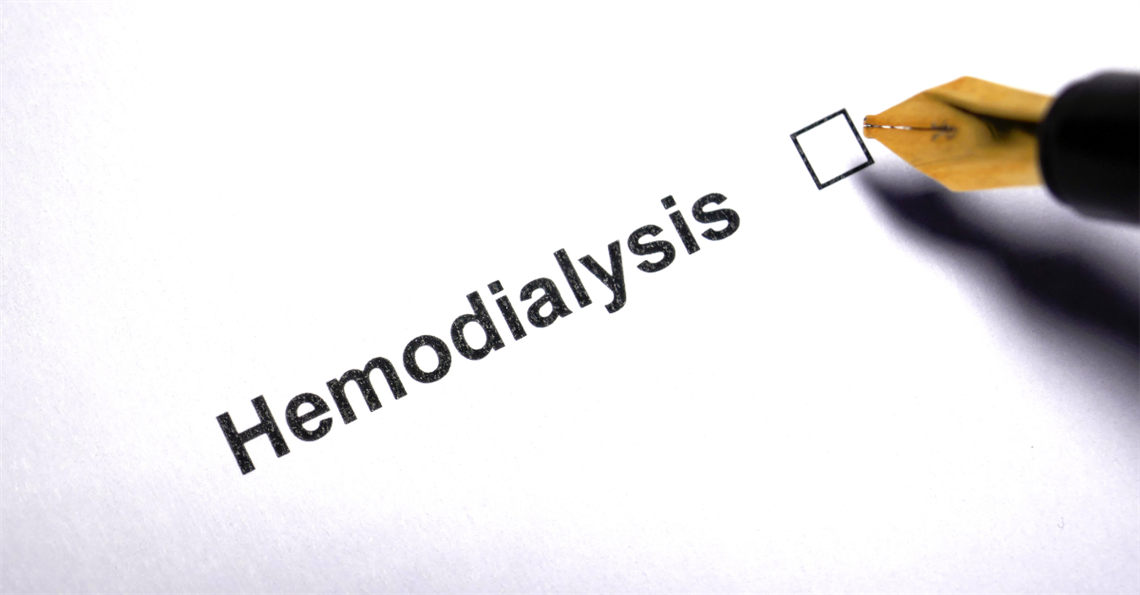
Importance of Water Purification Systems for Hemodialysis Centers
Patient Safety: During dialysis sessions, patients must rely on the quality of the water used. Poor-quality water can increase the risk of infection for patients and negatively affect treatment outcomes.
Treatment Efficacy: Pure water is essential for carrying out dialysis effectively. Water is used to clean patients' blood, remove harmful toxins, and correct electrolyte balance. If the water quality is substandard, these processes can be compromised, leading to reduced treatment success.
Infection Control: Hemodialysis water purification systems ensure that water is free from microorganisms. This reduces the risk of infection for patients and facilitates infection control.
Post-Hemodialysis Session
After the completion of a hemodialysis session, the ultra-pure water used is safely discarded by specialized waste systems. The water purification system continues to produce water continuously until it is ready for the next session. Ultra-pure water is a fundamental component for safely and effectively conducting hemodialysis sessions. This water is used to clean the patient's blood, remove harmful waste, and maintain a healthy balance. Hemodialysis centers carefully monitor the production and use of ultra-pure water and take all necessary measures to protect patients' health. Ultra-pure water is a critical factor in the success of hemodialysis treatment and helps optimize patient health.
Our RIVAMED hemodialysis water purification systems, designed specifically for dialysis patients, are complex machines that incorporate specialized technology. These systems go through a series of specialized stages to purify water, tailored to patients' needs and the capacity of the center, providing turnkey solutions.
Water for Hemodialysis Machines
Hemodialysis involves the external cleaning of the patient's blood. During this process, the patient's blood is pumped through a circuit to a dialysis machine and is cleaned there with a specialized mixture. Clean water is used to prepare this mixture and to clean the blood. The quality of this water is vital for the safety and efficacy of the treatment.
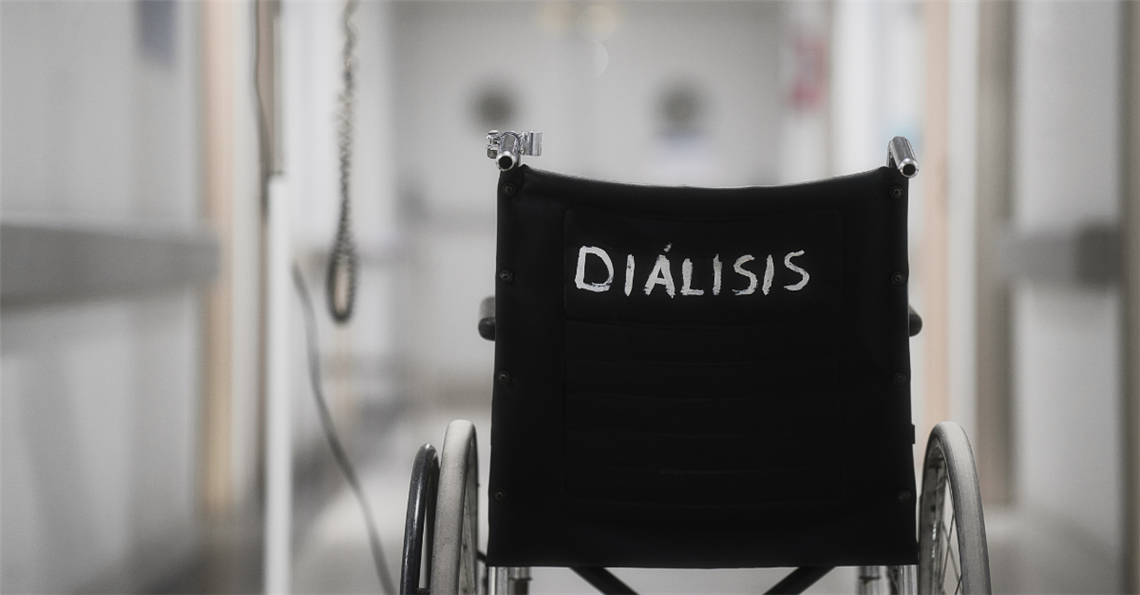
Areas of Use
Water purification systems are commonly found in dialysis centers. Dialysis centers are specialized facilities managed by a professional healthcare team. The water purification systems in these centers are continuously monitored and maintained. However, some dialysis patients prefer to undergo dialysis treatment at home, and in these cases, special water purification systems are installed in their homes. Home dialysis can improve the quality of life for patients and make the treatment process more comfortable.
Water Treatment System Procedure
The procedure for water purification systems involves a series of critical stages to ensure the water is of the highest quality and purity. These stages include:
- Filtration: Water is cleaned from large particles and dissolved substances. This provides physical purification of the water. Before dialysis sessions begin, a filtration process is carried out at the initial stage where the water is filtered. These filters prevent large particles and dissolved substances from remaining in the water, ensuring that it becomes visually clear and physically pure. Filtration is crucial for the safe start of a dialysis session.
- Reverse Osmosis: Reverse osmosis is used to purify the water from salts, minerals, and other harmful substances. This stage provides molecular-level purification of the water. After the filtration process, the water undergoes a reverse osmosis stage. Here, the water is subjected to high pressure to remove salts, minerals, and other harmful substances, further purifying it and making it suitable for the dialysis session. Reverse osmosis is a critical step in improving water quality.
- Deionization: The deionization process targets the removal of ions from the water. Ion-exchange resins are used to clean the charged ions from the water, further purifying it. After reverse osmosis, the water is subjected to a deionization process. During this stage, ion-exchange resins are used to remove the charged ions present in the water. Deionization makes the water electrically neutral and further purifies it, thereby maximizing the quality of water during the dialysis session.
- Ultraviolet (UV) Sterilization: UV sterilization is used to kill microorganisms. This purifies the water from microbes and reduces the risk of infection. After deionization, the water is subjected to UV sterilization to make it microbiologically safe. This process uses UV light to kill the microorganisms in the water. Deactivating the microbes reduces the risk of infection and ensures patient safety.
- Ultrafiltration: Ultrafiltration is the final stage and is used to remove fine particles and microbes. This stage makes the water extremely pure and increases patient safety. Finally, the water undergoes an ultrafiltration process. Fine particles and microbes are removed from the water through ultrafiltration, ensuring that the water used during the dialysis session is extremely pure and safe.
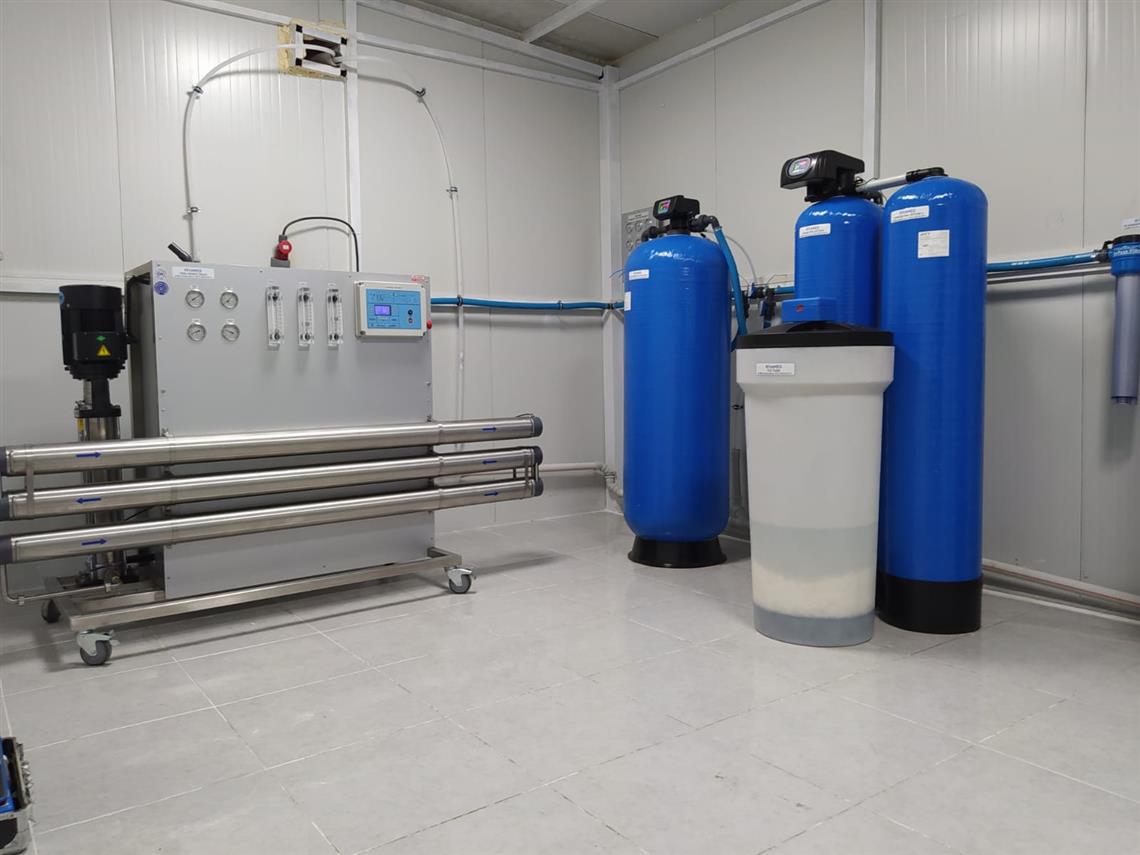
These procedures ensure that the water is of high quality and microbiologically safe. This enables dialysis patients to undergo treatment safely, without any risk of infection or complications.
Medical water purification systems are vital for ensuring the quality of water used during dialysis treatment and for protecting the health of patients. These systems use the latest technology to purify water to the highest level, ensuring the safety of dialysis patients. Water quality is an integral part of the dialysis treatment process and contributes significantly to the health of patients. During dialysis treatment, water purification systems follow a complex process to ensure the quality of the water. This process is critically important for the safe and effective conduct of dialysis sessions.
In conclusion, water purification systems follow a complex procedure to ensure that dialysis sessions are conducted safely and effectively. This procedure aims to purify the water to the highest level and to protect the health of patients. The strict monitoring of the technical specifications and processes of water purification systems optimizes the success of dialysis treatment and the health of patients.
RIVAMED adds value to the Turkish healthcare sector by reflecting its expertise in domestic production to the manufacturing of hemodialysis water purification systems. Our company produces medical water purification systems that are CE-certified, using high-quality materials. This offers a definitive assurance in meeting the ultra-pure water production requirements for hospitals, laboratories, dialysis centers, and other healthcare institutions.
RIVAMED: Ultra-Pure Water Production
One of the company's primary goals is to provide uninterrupted ultra-pure water production for patients in healthcare institutions like hospitals, laboratories, and dialysis centers. The medical water purification systems produced by RIVAMED not only elevate the quality of water but also reduce the risk of infection.
RivaMed is a leader in showcasing Turkey's domestic production strength in the healthcare sector. With CE-certified medical water purification systems and turnkey solutions, it offers reliability and excellent quality to its customers. The expertise in ultra-pure water production for healthcare institutions is combined with an approach that prioritizes the health and safety of patients.
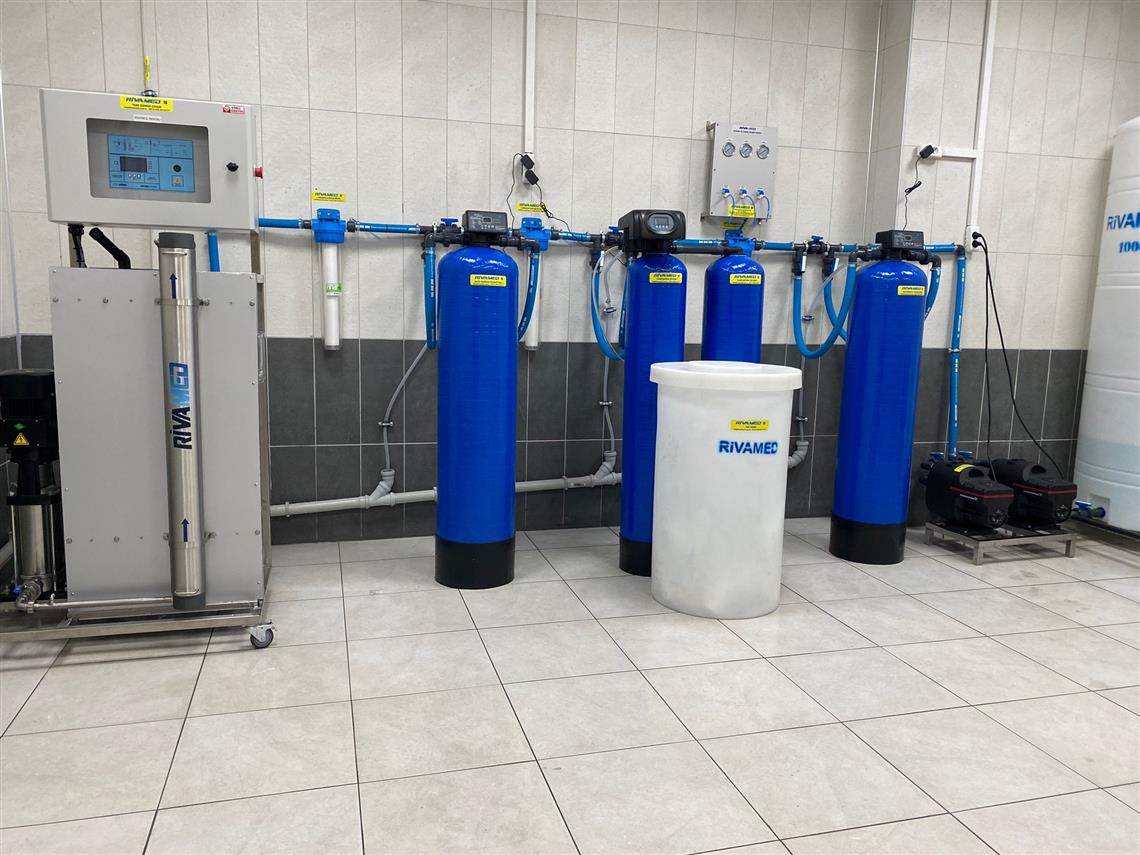
As RIVAMED, we offer high-quality turnkey system installations and project planning that are tailored to meet specific needs, thanks to our unique designs and plans in medical water purification systems. In addition, we continue to provide services worldwide with our 24/7 technical support and after-sales services, expanding our reach in the healthcare field globally.